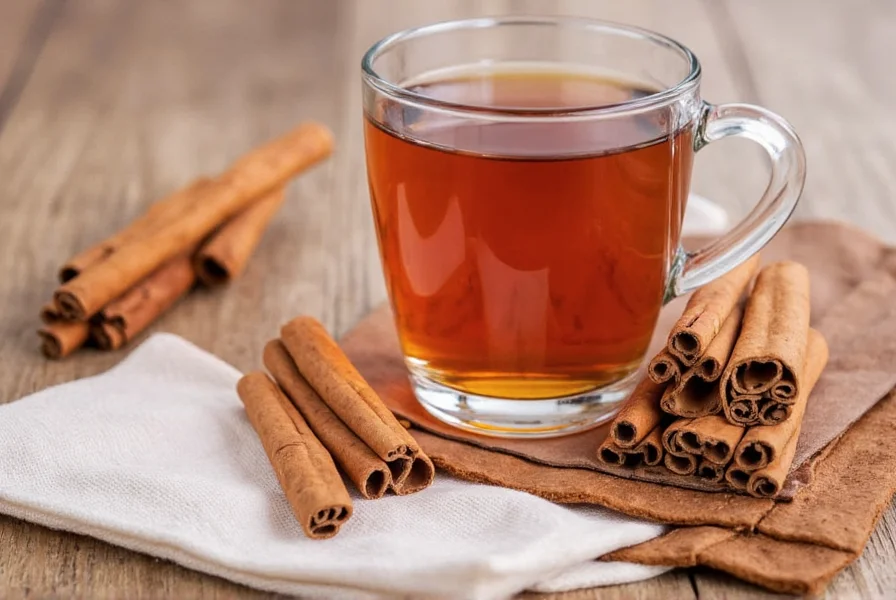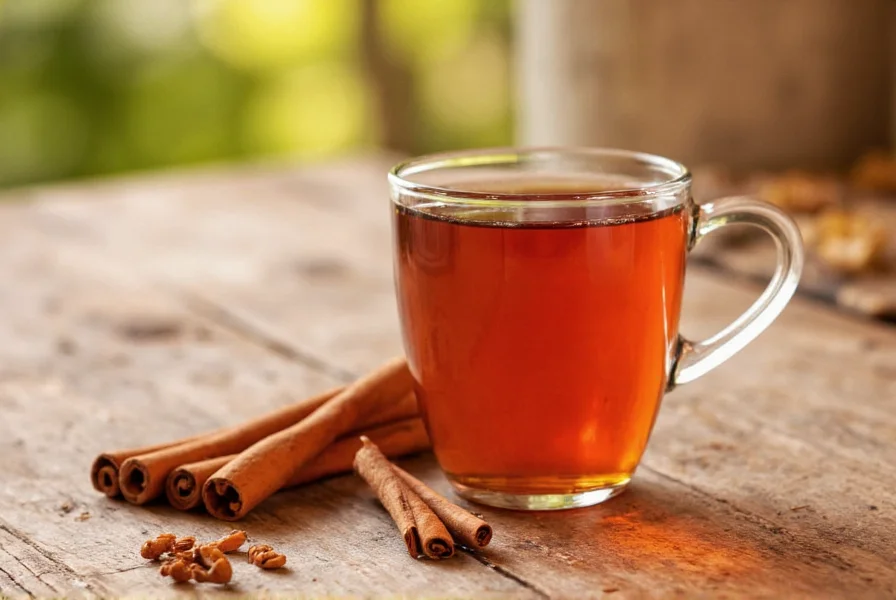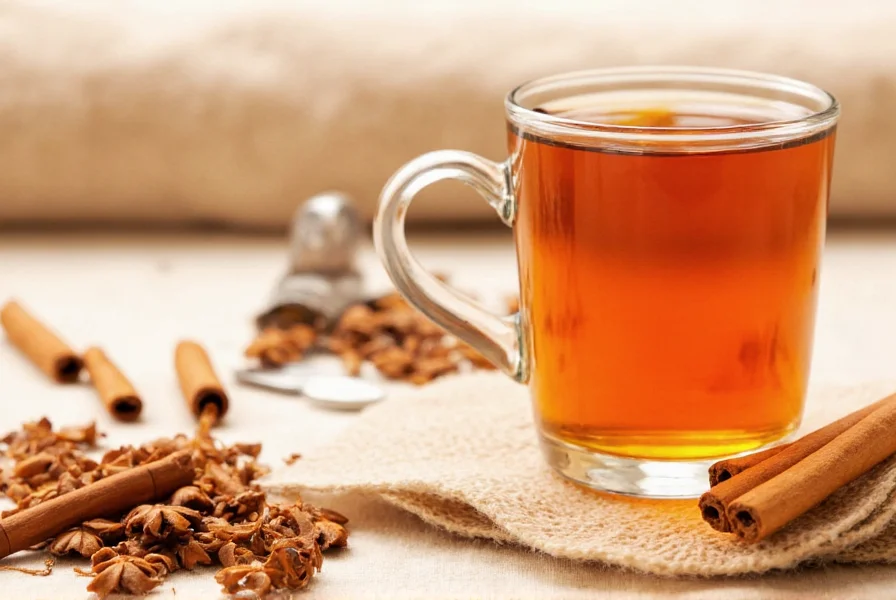Cinnamon tea has been cherished across cultures for centuries, evolving from ancient medicinal practices to modern wellness routines. This aromatic beverage combines the comforting ritual of tea drinking with the potent bioactive compounds found in cinnamon bark. Unlike many trendy herbal remedies, cinnamon tea's health properties have garnered increasing attention from researchers investigating natural approaches to metabolic and inflammatory conditions.
Science-Backed Health Benefits of Cinnamon Tea
Multiple studies indicate cinnamon tea's potential therapeutic effects, particularly for metabolic health. Research published in the Journal of the Academy of Nutrition and Dietetics demonstrated that consuming cinnamon could improve fasting blood glucose levels by 10-29% in people with type 2 diabetes. The mechanism appears related to cinnamon's ability to mimic insulin and enhance glucose uptake by cells.

Blood Sugar Regulation Properties
When prepared as tea, cinnamon's water-soluble compounds may help moderate post-meal blood sugar spikes. A 2020 meta-analysis in Nutrition Research Reviews concluded that cinnamon supplementation significantly reduced HbA1c levels—the marker of long-term blood sugar control. While tea contains lower concentrations than supplements, regular consumption may contribute to metabolic health as part of a balanced diet.
Antioxidant and Anti-inflammatory Effects
Cinnamon ranks among the most antioxidant-rich spices, with an ORAC (Oxygen Radical Absorbance Capacity) value exceeding 250,000 μmol TE/100g. These polyphenols combat oxidative stress that contributes to chronic diseases. A study in Molecular Nutrition & Food Research found cinnamon extract reduced inflammatory markers like TNF-α and IL-6 in human cell cultures, suggesting potential benefits for inflammatory conditions when consumed regularly as tea.
| Benefit | Scientific Support Level | Key Compounds Involved |
|---|---|---|
| Blood sugar regulation | Moderate (human studies) | Cinnamaldehyde, polyphenols |
| Antioxidant protection | Strong (lab and animal studies) | Proanthocyanidins, catechins |
| Inflammation reduction | Promising (preliminary human data) | Eugenol, cinnamic acid |
| Heart health support | Limited (observational data) | Coumarin (in moderation) |
Traditional Uses and Modern Applications
Traditional medicine systems have utilized cinnamon for digestive support and circulation enhancement for millennia. Ayurvedic practitioners recommend cinnamon tea for "agni" (digestive fire) support, while Traditional Chinese Medicine employs it for "cold" conditions. Modern applications focus on cinnamon tea's potential role in weight management protocols and as a comforting beverage for those reducing sugar intake.
Digestive Health Benefits
Cinnamon tea's carminative properties may help alleviate bloating and gas. The warming effect stimulates digestive enzymes while the antimicrobial compounds may support gut microbiome balance. A 2019 study in Frontiers in Microbiology noted cinnamon's effectiveness against certain foodborne pathogens, suggesting potential gut health benefits when consumed as tea.
Preparing Therapeutic Cinnamon Tea
To maximize health benefits while minimizing potential risks, proper preparation matters. Use Ceylon cinnamon ("true" cinnamon) rather than Cassia when possible, as it contains significantly less coumarin—a compound that may cause liver issues in high doses. Here's an evidence-based preparation method:
- Use 1-2 inches of Ceylon cinnamon sticks or ½ teaspoon of powder per 8oz water
- Bring water to just below boiling (90-95°C/194-203°F)
- Steep for 10-15 minutes (longer steeping extracts more compounds)
- Strain and enjoy plain or with lemon (avoid adding sugar to maximize blood sugar benefits)

Safety Considerations and Limitations
While generally safe, cinnamon tea has important considerations. Cassia cinnamon contains high coumarin levels—consuming more than 1-2 cups daily of Cassia-based tea may exceed safe limits for some individuals. Those taking blood sugar medications should monitor levels closely, as cinnamon may enhance medication effects. Pregnant women should limit consumption to 1 cup daily due to insufficient safety data at higher quantities.
It's crucial to understand that cinnamon tea should complement—not replace—medical treatment. The American Diabetes Association states: "While some studies show cinnamon may help lower blood glucose, the evidence isn't strong enough to recommend it as a treatment." Always consult healthcare providers before using cinnamon tea therapeutically, especially if managing chronic conditions.
Integrating Cinnamon Tea Into Wellness Routines
For optimal benefits, consider timing your cinnamon tea consumption. Drinking it before carbohydrate-rich meals may help moderate blood sugar response. Many nutritionists recommend replacing sugary beverages with cinnamon tea as part of metabolic health strategies. When combined with other evidence-based approaches like regular exercise and balanced nutrition, cinnamon tea can be a valuable component of holistic wellness practices.
Frequently Asked Questions
How much cinnamon tea should I drink daily for health benefits?
For Ceylon cinnamon tea, 1-2 cups daily provides potential benefits while staying within safe coumarin limits. Cassia cinnamon tea should be limited to 1 cup daily maximum due to higher coumarin content. Consistency matters more than quantity—daily consumption over weeks shows better results in studies than occasional drinking.
Can cinnamon tea lower blood sugar immediately after drinking?
No, cinnamon tea doesn't cause immediate blood sugar drops. Its effects are cumulative, requiring regular consumption over weeks to influence fasting glucose levels. A single cup may modestly reduce post-meal spikes when consumed before eating, but it's not a rapid-acting solution for hyperglycemia.
What's the difference between Ceylon and Cassia cinnamon for tea?
Ceylon cinnamon ("true" cinnamon) has a delicate flavor and contains minimal coumarin, making it safer for daily consumption. Cassia cinnamon is stronger, more common, but contains 60-120 times more coumarin. For regular therapeutic use, Ceylon is preferred, while Cassia should be limited to occasional use.
Does adding milk to cinnamon tea affect its health benefits?
Milk proteins may bind to some polyphenols, potentially reducing antioxidant availability. For maximum benefit, enjoy cinnamon tea plain or with lemon. If using milk, plant-based varieties like almond or oat milk appear less likely to interfere with compound absorption than dairy.
How long does it take to notice benefits from drinking cinnamon tea regularly?
Most studies showing blood sugar improvements used cinnamon supplementation for 8-12 weeks. Individual responses vary, but consistent daily consumption for at least 4-6 weeks is generally needed before potential metabolic benefits become noticeable. Digestive benefits may appear sooner, sometimes within days.











 浙公网安备
33010002000092号
浙公网安备
33010002000092号 浙B2-20120091-4
浙B2-20120091-4